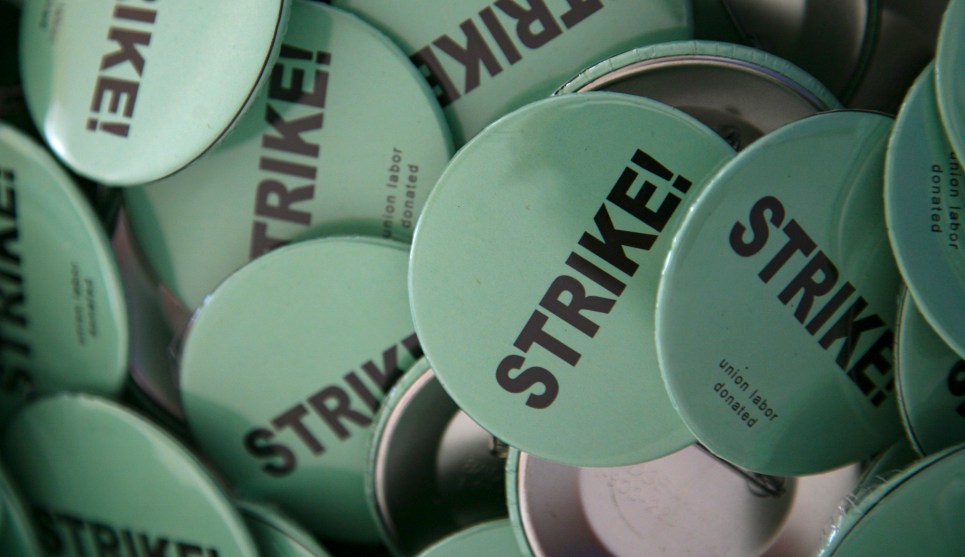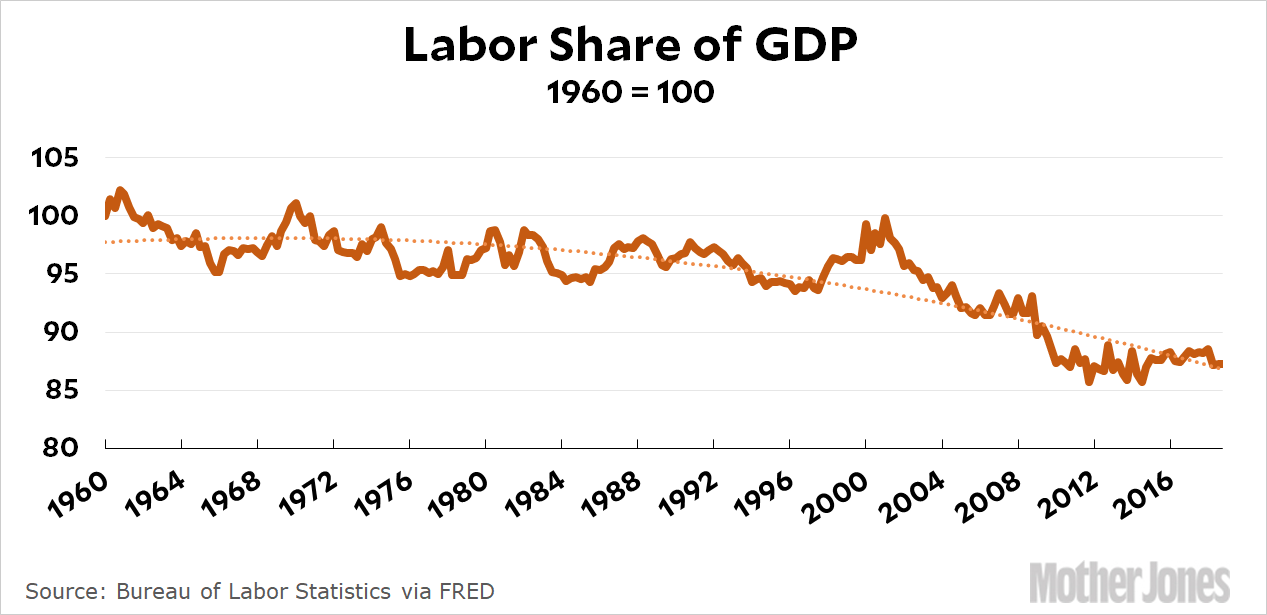
TNS via ZUMA
The Washington Post gives us the latest on the presidential race:
Just four days into Joe Biden’s presidential bid, the former vice president has quickly sought to define his campaign as a one-on-one battle between him and President Trump, rather than a contest with more than a dozen other Democrats vying for the party’s nomination. The general-election-style feud escalated further Monday as Biden kicked off his first campaign rally here in Pittsburgh by taunting Trump over labor issues — part of an overt appeal to blue-collar voters that immediately drew Trump’s ire. Biden’s remarks, in which he accused Trump of ignoring America’s middle-class in favor of the rich.
How serious is Biden about labor issues? I can’t say, which is why I wish Sherrod Brown had entered the race. There’s no question where he stands on unions.
A couple of days ago, a bunch of Democratic candidates attended the SEIU/CAP forum. After reading a few tweets from attendees, I was surprised that no one had mentioned card check, a way of making it easier for unions to organize. I asked about this, and apparently it was true: the subject hadn’t come up. This isn’t because anyone there was opposed to it. Most (all?) of the Democratic candidates support it. But it just wasn’t important enough to mention.
That’s surprising, and a little discouraging. Some time ago I wrote a magazine piece about the long decline of the labor movement and concluded with this:
The heart and soul of liberalism is economic egalitarianism. Without it, Wall Street will continue to extract ever vaster sums from the American economy, the middle class will continue to stagnate, and the left will continue to lack the powerful political and cultural energy necessary for a sustained period of liberal reform. For this to change, America needs a countervailing power as big, crude, and uncompromising as organized labor used to be.
But what?
Over the past 40 years, the American left has built an enormous institutional infrastructure dedicated to mobilizing money, votes, and public opinion on social issues, and this has paid off with huge strides in civil rights, feminism, gay rights, environmental policy, and more. But the past two years have demonstrated that that isn’t enough. If the left ever wants to regain the vigor that powered earlier eras of liberal reform, it needs to rebuild the infrastructure of economic populism that we’ve ignored for too long. Figuring out how to do that is the central task of the new decade.
That was eight years ago, and since then nothing has taken the place that labor used to occupy on the left. Nor is anything on the horizon. But the decline of labor unions is at the heart of stagnating middle-class incomes and growing income inequality. Here’s the key chart:

In the last 60 years, as private-sector unions disintegrated, labor’s share of national income dropped and dropped and dropped. There was a brief recovery during the dotcom boom, but that was quickly put paid. The Great Recession did even further damage, and by 2019 labor’s share had dropped by 13 percent since 1960. That amounts to about $700 billion in lost wages, or roughly $6,000 per working family.
Why did this happen? Because it could. Without unions to push back, owners of capital took a bigger share for themselves and there was no one to stop them. Nor was this any kind of accident. Throughout the entire postwar era, there is nothing—not abortion, not tax cuts, not opposition to social welfare—that Republicans have been more united and aggressive about than destroying unions. This is because the business class that supports Republicans knows perfectly well that unions are their core problem. You have to kill them off before you can get your tax cuts or your stock buybacks or your executive compensation that’s 300x the average worker.
If you want to know if someone supports the middle class, one question will do the job: do you want labor unions to regain their power? If you don’t, then like Donald Trump, you’re just faking it. Granted, it’s a scary thought for some liberals, too, since a re-empowered labor movement means that a bunch of blue-collar workers would have real power of their own and start calling a lot of the shots on the left. But what other way is there to break the power of corporations and the right?















